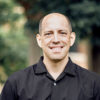As heartbreaking as it is to say, sexual abuse is not just a secular occurrence. Uncountable congregations have been rocked by scandals of pastors abusing children in their midst, while church leaders cover it up. Victims of this abuse feel that they cannot say anything because no one would believe them, and they know what would happen to the church if someone did. They fear drowning in the shame and loneliness.
Justin Holcomb is an Episcopal priest and teaches theology, philosophy, and Christian thought at Gordon-Conwell-Theological Seminary and Reformed Theological Seminary. He was also abused at age 11. Justin calls on the family of God to reach past the horrifying picture of abuse in order to help the victims and the church heal.
“First Christians and the church need to acknowledge the travesty and the prevalence. Not be shocked or think the accusations are attacking the Christian faith. Believing people is a huge step because victims already feel silenced, and as though they’re not going to be believed. It takes so much courage to say what happened to them.”
“State clearly to yourself and to God what actually happened and to realize that the suffering that you have gone through, or that that person has gone through, is something that God actually wants to engage with, and provide hope and healing for that person.”
“Acknowledgement is the starting point.”
Many scandals continue not because they are actively covered up, but because we refuse to admit what is happening. We are all fallen people, and as much as we pray that our leaders will hold true to their calling, they too can fall. Acknowledgment will not solve the issues of our hearts immediately, but it is a step toward healing. Justin emphasize that the hope in healing is real.
“It’s not a magic wand and it’s going to be different depending on everyone’s situation. But the heartbeat and bedrock of our hope is that Jesus is God and man, and that he died on the cross for our sins. He has conquered his enemy Satan, and his effects of sin in the world.”
One of the prominent effects of sexual abuse is shame. Justin reminds us that Christ was not immune or unfamiliar with feelings of shame.
“The way that the Bible talks about shame is in three images: nakedness, filthiness, and isolation. The great news is that Jesus has entered into our experience of being human, but without sin. When Christ was dying on the cross during His passion week of betrayal, He experienced all of those. He was actually stripped naked on our behalf. He took our nakedness, took the vulnerability. He was defiled both by the sins of the world that were placed upon his shoulders but also literally. He was he was mocked and defiled and filthy and he was crucified outside of the camp.”
“He did all of those things; He took nakedness so we could have his robe of righteousness. He took the sins we’ve done and the sins done to us, so we could be washed clean. He was crucified outside of the camp so we could be adopted into the family.”
“Shame is just one effect of sexual abuse, but we have the work of Christ specifically saying, ‘No. Because of me and what I have done you are clean. You are covered in the righteousness of Christ. You are no longer vulnerable or naked. You belong. You’ve been adopted by my father.’ That is what we need to share to undermine shame.”
“The resurrection tells us that the sin done to us is not the last chapter on our story. But that our King and Savior has conquered our enemy, and that the enemy is not just our enemy but God’s enemy. And God is much stronger.”
Sexual abuse is never the victim’s fault. They should never be ashamed of it. So long as we are on this Earth, we will always be touched by sin. But that sin has been conquered, and holds no power over us. We must overcome the fear of speaking up and admitting when it has taken root. We must be a family of believers who holds each other up when we have been so let down. For we have been given new life, we need only remind each other of it.
Justin Holcomb is an Episcopal priest, serving as the Canon for Vocations in the Diocese of Central Florida, and teaches theology, philosophy, and Christian thought at Gordon-Conwell-Theological Seminary and Reformed Theological Seminary. Justin holds two masters degrees from Reformed Theological Seminary and a Ph.D. from Emory University.
Healing for victims of sexual abuse in the church





















